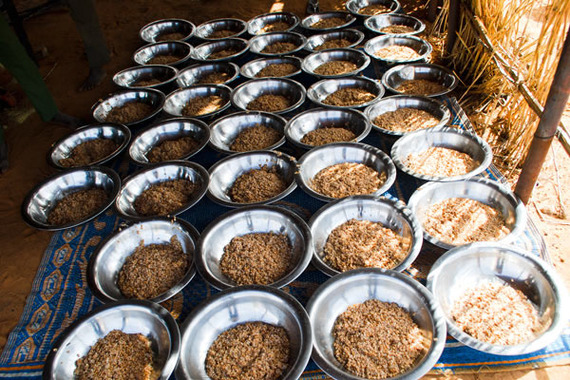Last Sunday I was running against hunger in the annual event organized in the eternal city, Rome by WFP, FAO and IFAD, United Nations agencies devoted to fighting hunger, malnutrition and poverty worldwide and ensuring food assistance during emergency operations, food security, investment in family farming as an antidote to resilience and livelihood sustainability. Statistically there are 850 million hunger people who go to bed hungry every night. Just imagine if we, speaking from the western world, go to bed hungry only for one or two nights. Would we be able to be as effective and as productive at work as always?
Running against hunger means to me the following:
1. From an affluent country of the world from where I am now geographically speaking, running against hunger, poverty and malnutrition allows me to make a donation, add up a voice for the voiceless and reach out to poor local communities that I do not see with my eyes but I know they exist.
2. Running to Inform and raise awareness of global challenges, although we are not directly affected, poverty is a planetary challenge that we are experiencing nowadays where we live as well, following the global financial and economic crisis of 2008. People did become poorer, in different ways and forms, with less purchasing power to provide the same opportunities for their children, from an educational standpoint for instance.
3. Running to fight social inequalities and to instill a sense of solidarity, unity, prosperity, freedom and dignity of all human beings, aspiring to live in a world free of hunger and free of wars. Peace processes and political willingness are the solutions.
4. Running to understand that we are all interconnected: coming from different regions of the world and mixing in a multicultural and open-minded community, we need to digest the fact that climate change, deforestation, malnutrition, poverty, hunger affect us all, no matter our historical background. We are ALL living now and we must act together. The basic food we eat, like tomatoes for instance, come from Latin America originally, rice comes from Asia, wheat from the Middle East, sunflower for our oil from North America, olives from Palestine, Syria and Iran, potatoes from Perù, bananas from Malaysia. The list is long and no matter where we are, we all eat this food, that someone else, near or far, produces for us.
Priority is food and education. The school feeding program put forward by the World Food program provides school meals to between 20 and 25 million children across 63 countries, often in the hardest-to-reach areas. School meals act as social safety nets helping families to educate their children and protect their food security in times of crises. School meals mostly target girls so that they have an opportunity to go to school even in societies that traditionally exclude them from schooling.
Both school meals and take-home ratios support healthy development so that children, by going to school and by eating nutritious food, can become healthy and productive adults, breaking in this way the cycle of poverty in the world's most vulnerable areas. Food is also an incentive to send children to school and keep them there. School meals allow children to focus on their studies rather than their stomachs and they are not forced as a consequence to work in the fields with their families. This food is, as often as possible, procured locally, which benefits local farmers and the whole community while enhancing the sustainability of the program and makes healthier food baskets.
It costs approximately 0.25 $ cents to feed a child and only $40 to provide school feeding for her/him for the entire school year. The prevalence of undernourishment in the population is found in Central African Republic, Namibia, Zambia, Malaysia, Ethiopia, Malawi and Democratic People's Republic of Korea ( 35 percent) followed by West Africa ( 25-34,9 percent).
We must think about this issue and the interconnectedness of food education, nutrition and people' development -- human potential towards building and creating a world free of hunger, with more social equality, social justice and freedom to choose the life each person wants to lead. Access to food is the door that must be open to make sure we all lead the lives we want. Education to free our minds and build a better world is the starting point. As the Latins in Rome used to say, mens sana in corpore sano, meaning "a sound mind in a sound body." And they were right.

